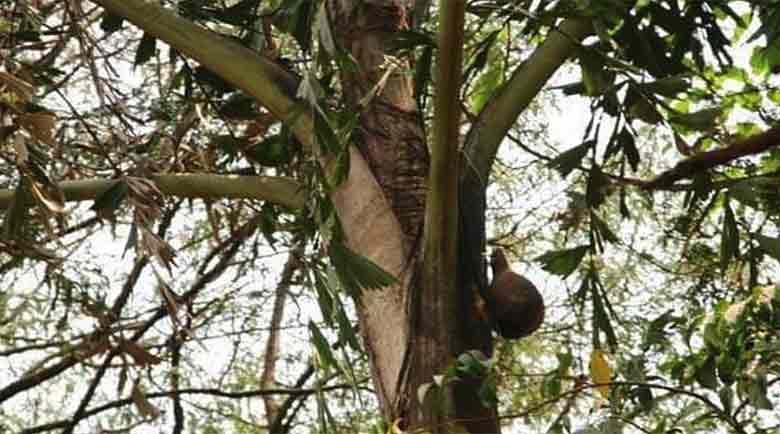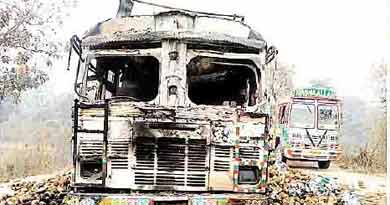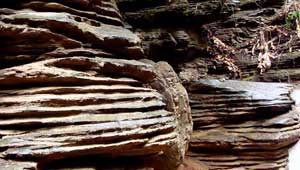Bastar’s Salphi trees under serious threat, tribals distressed
Jagdalpur | Correspondent: The Salphi tree, a significant source of income for the tribals of Bastar in Chhattisgarh is facing a serious threat.
An unknown fungus has been causing these trees to wilt rapidly and eventually die, leaving the tribals under distressed about their livelihoods.
This is not the first time such a crisis has occurred. Approximately a decade and a half ago, a similar issue had surfaced.
Salphi juice, commonly referred to as “Bastar Beer,” is not only popular locally but also has international recognition.
However, in recent years, tribals have struggled to sustain their livelihoods due to the declining health of these trees.
Salphi trees are a major source of income for the tribal-dominated villages of Bastar. Many Adivasis sell Salphi juice at the local haat-bazaars to sustain their families.
Experts suggest that a fungal infection is responsible for the decline of these trees. Despite efforts by the villagers to treat the trees, they have been largely unsuccessful.
As a result, many have lost hope and are abandoning the practice of planting Salphi trees altogether. Villagers recall that 10 to 15 years ago, Salphi trees were abundant in every village garden across Bastar.
Today, however, their numbers have decreased significantly in rural areas.
Families depend on Salphi juice
The juice extracted from the Salphi tree, known as “Bastar Beer,” remains in high demand.
It is not only favored by local villagers but is also a popular choice among tourists visiting Bastar.
Foreign and domestic visitors enjoy Salphi juice with great enthusiasm.
As the main source of income for Bastar’s tribal communities, Salphi trees are cherished and nurtured with care.
They are often planted near homes and on field boundaries.
Villagers treat these trees as their own children, nurturing them until they reach maturity.
A Salphi tree starts producing juice after 9–10 years and continues to yield for up to 25 years.
Each tree can provide an income of ₹40,000 to ₹50,000 annually.
Lack of Awareness Among Villagers – Dr. Painkra
Plant specialist Dr. K.S. Painkra explains that the fungal infection affecting Salphi trees is spreading rapidly.
He suggests that digging a pit near the tree roots and applying antifungal chemicals like Dicoderma and Denomile can eliminate the fungus.
This treatment enables the tree to receive nutrients and recover from the infection.
Dr. Painkra emphasizes the importance of early detection and treatment.
Unfortunately, due to a lack of awareness, many villagers in remote areas fail to address the problem in time, leading to the rapid decline of the trees.
This crisis highlights the urgent need for government and community intervention to save the Salphi trees and safeguard the livelihoods of Bastar’s tribal population.




